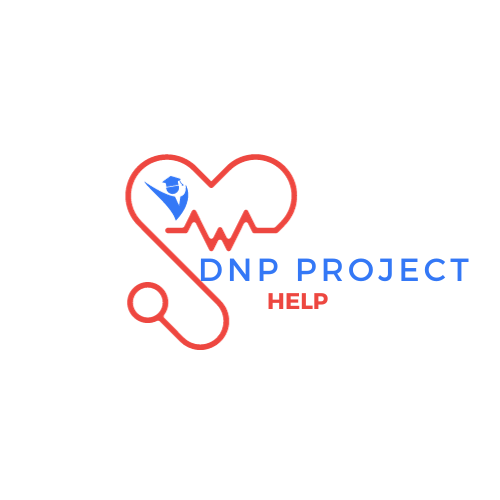
Task: Understanding Patient Needs
Engage in an interactive simulation to learn about the nurse’s role in healthcare coordination. Afterward, write a 4–5 page essay conducting a thorough assessment of patient needs.
Keep in mind that each assessment in this course builds upon the previous one, so make sure to complete them in the given order. The essay is for MSN FP6610, titled “Comprehensive Needs Assessment.”
Title: Understanding Care Coordination in Healthcare
Introduction:
Care coordination is becoming increasingly complex in the healthcare system due to the growing number of providers, diverse care settings, and various methods of delivering care. Hospitals are implementing interventions like improved communication systems, information technology, and personnel resources to address gaps in care coordination. This assessment offers an opportunity to conduct a comprehensive needs assessment.
Competencies and Criteria:
Successfully completing this assessment demonstrates proficiency in the following competencies and assessment criteria:
- Competency 1: Influence of Legislation, Policy, and Research on Evidence-Based Practice:
- Identify current gaps in a patient’s care.
- Develop a strategy for gathering additional necessary assessment data beyond an initial patient interview.
- Competency 2: Factors Affecting Patient Outcomes:
- Identify factors most likely to affect patient outcomes.
- Advocate for the benefits of a multidisciplinary approach to patient care fostered by a care coordination plan.
- Competency 3: Care Coordination Performance Measures:
- Identify specific patient and care coordination outcome measures related to accrediting standards.
- Competency 4: Application of Evidence-Based Practices:
- Identify evidence-based practices from the literature necessary for successfully implementing a plan of care.
- Competency 5: Effective Communication:
- Write clearly and concisely, using correct grammar and mechanics.
- Support main points, claims, and conclusions with credible evidence, correctly formatting citations and references using APA style.
Context:
In response to the priorities outlined in “To Err Is Human: Building a Safer Health System” by Kohn, Corrigan, and Donaldson (2000), care coordination has been identified as a crucial national strategy by the National Quality Forum (NQF) to enhance patient safety and improve the quality of care delivery.
Coordination of care is a recognized professional standard among registered nurses, regardless of their practice setting. Nurses play a vital role in educating patients about medications and care plans, ensuring the continuity of care as they adapt to the evolving healthcare landscape.
Conclusion:
As the healthcare system evolves, nurses continue to be at the forefront of care coordination. This comprehensive needs assessment assignment is an opportunity to delve into the complexities of care coordination and demonstrate proficiency in key competencies essential for delivering high-quality patient outcomes.
Questions to Consider:
As you get ready to complete this assessment, you might want to ponder on related issues to deepen your understanding or broaden your viewpoint. Feel free to discuss these questions with a peer, work colleague, friend, or a member of your professional community. Remember, these questions are for your own development and exploration and do not need to be submitted as part of your assessment.
- What are the main reasons for conducting a patient needs assessment?
- Which types of information are likely to be most valuable for improving patient outcomes?
- What are the benefits of adopting a multidisciplinary approach to coordinated care?
Assessment Instructions:
Note: Please complete the assessments in the order presented in this course.
Preparation:
To prepare for this assessment, participate in the Vila Health: The Nurse’s Role in Care Coordination simulation (accessible in the Required Resources). The patient information from the simulation will be used for your needs assessment.
Note: You can submit all or part of your draft to Smarthinking for feedback before submitting the final version of this assessment. Keep in mind the turnaround time of 24–48 hours for feedback.
Requirements:
Complete a comprehensive needs assessment for Mr. Decker based on the information provided in the Vila Health simulation.
Needs Assessment Format and Length:
Format your needs assessment using APA style:
- Utilize the APA Style Paper Template (linked in the Required Resources).
- Include a title page and a reference page. An abstract is not required.
- Use a running head on all pages.
- Incorporate appropriate section headings.
Your needs assessment should be 4–5 pages in length, excluding the title and references pages.
Supporting Evidence:
Cite 3–5 scholarly or professional sources to support your assessment.
Conducting the Assessment:
Note: The following requirements correspond to the grading criteria in the scoring guide. Ensure your needs assessment addresses each point, at a minimum.
- Identify current gaps in the patient’s care.
- Use an appropriate needs assessment tool.
- Consider types of patient information crucial for assessing the current level of care.
- Develop a strategy for gathering additional necessary assessment data not readily available from an initial patient interview.
- Consider the full range of interrelated needs affecting the patient’s health.
- Identify factors most likely to affect patient outcomes.
- Consider potential effects of these factors on outcomes.
- Support conclusions with evidence.
- Identify specific patient and care coordination outcome measures related to accrediting standards.
- Identify applicable accrediting standards.
- Explain the rationale for measuring outcomes based on accrediting agencies.
- Describe the relationship between specific outcomes and standards.
- Identify evidence-based practices necessary for implementing a plan of care successfully.
- Ensure sources are relevant and credible.
- Consider best practices with a population health focus on patient outcomes.
- Advocate for the benefits of a multidisciplinary approach to patient care.
- Present key points in your argument.
- Support assertions with evidence.
- Write clearly and concisely, using correct grammar and mechanics.
- Coherently express main points and conclusions.
- Proofread to minimize errors that could distract readers.
- Support main points, claims, and conclusions with credible evidence, correctly formatting citations and references using APA style.
Title: The Impact of Healthcare Policies on Evidence-Based Practice
Introduction:
Healthcare policies significantly influence how clinical practitioners conduct their work, requiring them to adjust schedules and strategies to align with evidence-based practices. Evidence-based practice is a crucial aspect of national and global health agendas, with the United States implementing various policies to regulate healthcare practices. This essay explores the effects of healthcare policies, focusing on the Patient Protection and Affordable Care Act (PPACA) as a case study.
Effects of PPACA on Evidence-Based Practices:
The PPACA, introduced to cut costs, increase insurance coverage, promote health equality, and enhance hospital care quality, has brought both positive and negative impacts to the healthcare system. While aiming to achieve these goals, the policy has led to a looming shortage of healthcare professionals in the next decade. This shortage has resulted in reduced health quality due to the burden on a limited number of practitioners in the public health sector.
Challenges Caused by PPACA:
The consequences of PPACA on healthcare delivery include increased waiting times, limited time with caregivers, shortened provider-patient interactions, and overall patient dissatisfaction. These factors directly impact the quality of care provided, which is a key concern for evidence-based practice that emphasizes quality mechanisms. If the implemented structures do not allow for accuracy, the outcomes of evidence-based practices may become questionable.
Gathering Insights from Healthcare Workers:
To better understand the implications of healthcare policies on evidence-based practices, insights can be gathered from healthcare professionals, especially nurses and private practitioners affected by policies like the ACA. These policies tend to impact healthcare workers more than patients. For instance, the compulsory health insurance scheme under the ACA affects insurance companies and patients who rely on these providers, making information from healthcare workers a valuable source for assessing the effects of healthcare policies on evidence-based practices.
Conclusion:
Healthcare policies, such as the PPACA, play a significant role in shaping the landscape of evidence-based practice. While aiming to achieve positive outcomes, these policies may inadvertently introduce challenges that impact the quality of healthcare delivery. Understanding these effects is essential for ensuring that evidence-based practices can thrive within the evolving healthcare policy framework. MSN FP6610 Comprehensive Needs Assessment Essay.
Factors Affecting Patients’ Outcomes in Care Coordination
Care coordination involves organizing patient care activities among multiple healthcare participants to ensure the effective delivery of healthcare services (Hillis et al., 2016). Understanding factors that influence patient outcomes is crucial, with a focus on population health and interpersonal communication.
Population Health:
Care coordination places the population of patients at the center, requiring healthcare organizations to fully assess and understand the community they serve. Population planning involves identifying healthcare needs and setting goals before implementing strategies for healthcare improvement.
Interpersonal Communication:
In the current complex healthcare system, interoperability is vital. A lack of interoperability can hinder evidence-based practices and patient services. Effective communication and coordination in an interoperable system promote transparency and accountability.
Benefits of Care Coordination
A well-implemented care coordination plan offers various benefits to both patients and healthcare providers. It ensures the accuracy of procedures, efficient implementation of health tasks, and accountability. This results in reduced health costs for patients, optimized utilization of hospital resources, and overall enhanced quality of care.
Care Coordination Performance Measures based on Accreditation Standards
Performance measures assess changes in health associated with interventions and are driven by national and international standards. Specific outcome measures for patient care coordination include:
Mortality Rates:
A decrease in mortality rates for a particular illness indicates improvement in care coordination activities.
Readmissions:
Increased rates of readmissions post-hospitalization may signal inadequate initial care, falling below expected standards.
Safety of Care:
Safety measures, such as Hospital Acquired Infections (HAI), reflect the level of care coordination and adherence to accreditation standards.
Patient’s Experience:
Patient perception of care quality serves as a valuable performance measure, allowing comparisons between different healthcare facilities.
Evidence-Based Practices for Plan of Care Implementation
Infection Control:
Preventing hospital-acquired infections is crucial. Nurses play a key role in adhering to infection control policies, maintaining cleanliness, wearing protective attire, and practicing proper hand hygiene.
Gathering and Presenting Data:
Organizing and presenting data, including blood pressure results and infection statistics, to physicians and hospital officials aids in evidence-based practice. This data provides insights into patient trends and helps structure health plans for improvement.
This comprehensive approach to care coordination and evidence-based practices contributes to better patient outcomes and effective healthcare delivery. MSN FP6610 Comprehensive Needs Assessment Essay.
References
- Hillis, R., Brenner, M., Larkin, P. J., Cawley, D., & Connolly, M. (2016). The role of care coordinator for children with complex care needs: A systematic review. International Journal of Integrated Care, 16(2), 1–18.
- Huntington, W. V., Covington, L. A., Center, P. P., Covington, L. A., & Manchikanti, L. (2011). Patient Protection and Affordable Care Act of 2010: reforming the health care reform for the new decade. Pain physician, 14(1), E35-E67.
- Seddon, D., Krayer, A., Robinson, C., Woods, B., & Tommis, Y. (2013). Care coordination: Translating policy into practice for older people. Quality in Ageing and Older Adults, 14(2), 81–92.
- Tzelepis, F., Sanson-Fisher, R. W., Zucca, A. C., & Fradgley, E. A. (2015). Measuring the quality of patient-centered care: Why patient-reported measures are critical to reliable assessment. Patient Preference and Adherence, 9, 831–835. MSN FP6610 Comprehensive Needs Assessment Essay.
Comprehensive Needs Assessment Scoring Guide
| Criteria | Non-performance | Basic | Proficient | Distinguished |
| Identify current gaps in a patient’s care | Does not identify perceived gaps unsupported by data. | Identifies perceived gaps unsupported by comprehensive data. | Identifies current gaps in a patient’s care. | Identifies gaps based on comprehensive patient-centered needs assessment, including patient-reported data. |
| Develop a strategy for gathering additional necessary assessment data | Does not suggest a general approach. | Suggests a general approach for gathering data. | Develops a strategy for gathering additional, necessary data. | Develops a holistic, coordinated care perspective strategy. |
| Identify factors most likely to affect patient outcomes | Does not identify factors affecting outcomes. | Identifies factors with some unrelated to outcomes. | Identifies factors most likely to affect patient outcomes. | Describes clear cause-and-effect relationships supported by credible evidence. |
| Identify specific patient and care coordination outcome measures | Does not identify measures. | Identifies measures. | Identifies measures related to accrediting standards. | Identifies measures related to standards, justifying and articulating clear relationships. |
| Identify evidence-based practices from the literature | Does not identify evidence-based practices. | Identifies practices. | Identifies practices necessary for a plan of care. | Identifies practices from current, credible sources, emphasizing a population-health perspective. |
| Advocate for the benefits of a multidisciplinary approach | Does not list benefits. | Lists benefits. | Advocates for benefits. | Presents a well-reasoned argument supported by credible evidence. |
| Write clearly and concisely | Does not write clearly. | Writing is not consistently clear. | Writes clearly and concisely. | Writes clearly and concisely without errors. |
| Support main points with credible evidence, correctly formatting citations | Does not support main points. | Main points lack support. | Supports main points with credible evidence. | Supports main points with relevant, credible, and convincing evidence, error-free citations. |
Must Read:


